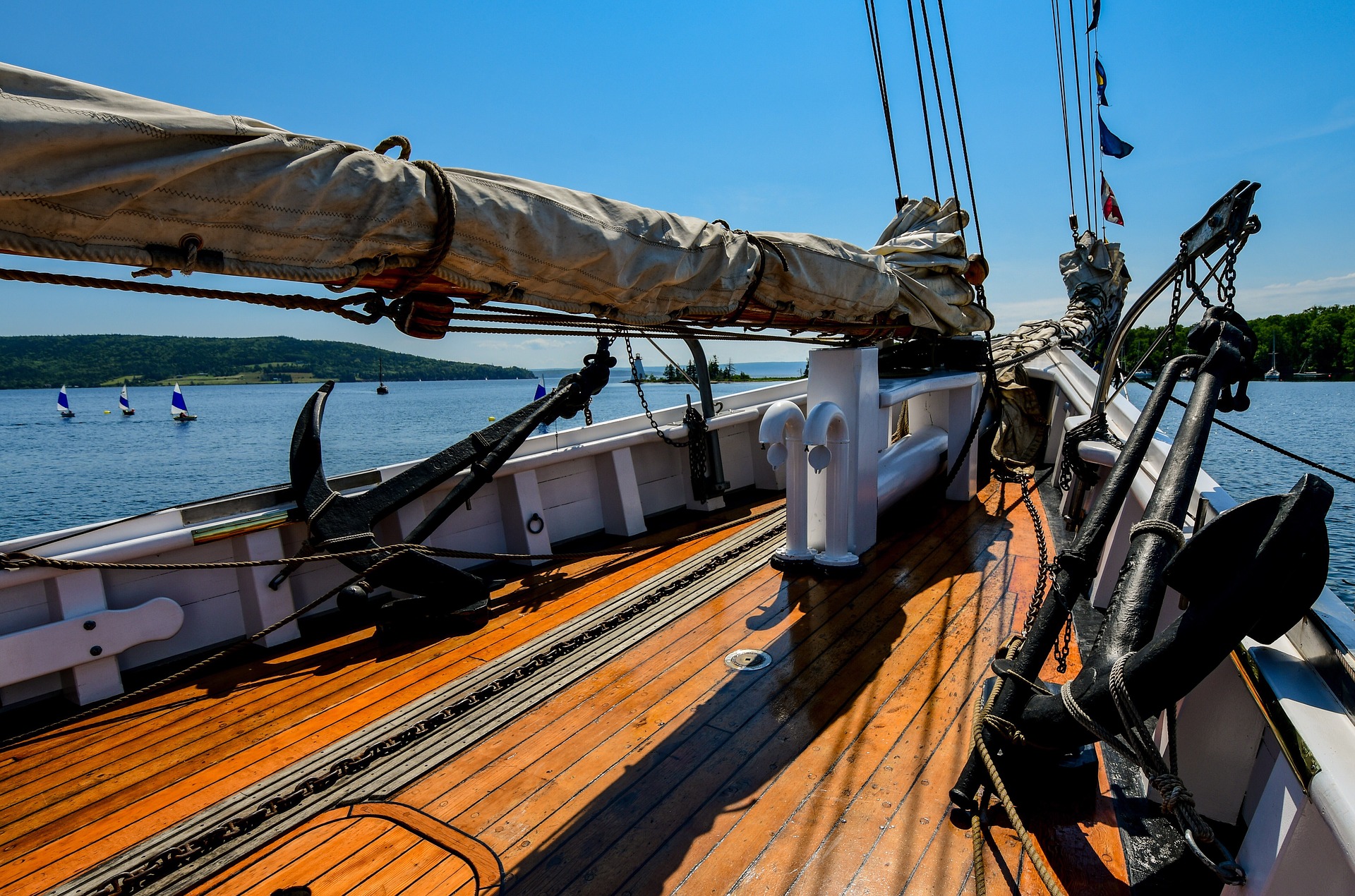Canada News
Government of Canada Partnering with Indigenous Coastal Communities to Enhance Marine Safety in Nunavut and Manitoba

Under this program, communities are provided with funding to purchase boats and equipment to enhance their marine safety capacity as members of the Canadian Coast Guard Auxiliary. (Pixabay photo)
Ottawa, Ontario – Through the Oceans Protection Plan, the Government of Canada is working in partnership with Indigenous coastal communities to improve marine safety and responsible shipping to protect Canada’s marine environment.
As part of this $1.5 billion plan, in 2017 the Canadian Coast Guard launched the Indigenous Community Boat Volunteer Pilot Program. Under this program, communities are provided with funding to purchase boats and equipment to enhance their marine safety capacity as members of the Canadian Coast Guard Auxiliary.
Today, under year three of the program, the Honourable Daniel Vandal, Minister of Northern Affairs and Member of Parliament for Saint Boniface—Saint Vital, on behalf of the Honourable Bernadette Jordan, Minister of Fisheries, Oceans and the Canadian Coast Guard, announced $994,847 for communities in Manitoba and Nunavut to purchase search and rescue boats and related equipment.
One community in Manitoba and three communities in Nunavut are receiving funding:
- Churchill, MB – $319,035 to purchase a search and rescue boat, related equipment, and a boat shelter;
- Arviat, NU – $305,326 to purchase a search and rescue boat and related equipment;
- Pond Inlet, NU – $313,167 to purchase a search and rescue boat and related equipment;
- Clyde River, NU – $57,319 to purchase a boat shed for an existing boat in the community.
Through new equipment and training, Auxiliary members are better equipped and prepared to respond to marine emergencies, helping to enhance the safety of their communities and the surrounding waters and coasts.
The Canadian Coast Guard Auxiliary is a national non-profit organization of 4,000 volunteer members with access to 1,100 vessels that boost the Government of Canada’s maritime search and rescue response capacity. The Canadian Coast Guard funds the Auxiliary through a contribution program totaling .
7 million each year. The Auxiliary responds to approximately 25 per cent of maritime calls for assistance each year, providing an often life saving service.
The $1.5 billion Oceans Protection Plan is the largest investment ever made to protect Canada’s coasts and waterways. This national plan is creating a stronger marine safety system that provides economic opportunities for Canadians today, while protecting our coastlines and clean water for generations to come. This work is being done in close collaboration with Indigenous peoples, local stakeholders and coastal communities.
Quotes
“Investment through the Indigenous Community Boat Volunteer Pilot Program recognizes the critical role of Indigenous communities as members of the Canadian Coast Guard Auxiliary in protecting mariners, and their residents. Indigenous coastal communities have been stewards of the environment including oceans and shores for generations, and are unquestionably vital to Canada’s marine safety system today. The program provides necessary funding and equipment to support their efforts.”
The Honourable Bernadette Jordan, Minister of Fisheries, Oceans and the Canadian Coast Guard
“This important funding to Churchill, Arviat, Clyde River and Pond Inlet through the Indigenous Community Boat Volunteer Pilot Program, will be used to purchase new search and rescue boats, equipment and boat shelters. Our government will continue to support Northern Manitoba and Nunavut communities in their capacity to respond to emergencies on the water. Their contributions to the Coast Guard are invaluable.”
The Honourable Daniel Vandal, Minister of Northern Affairs
“Our Government is committed to working with Indigenous coastal communities in order to protect some of Canada’s greatest resources: oceans and waterways. Thanks to initiatives under the Oceans Protection Plan, marine shipping and coastal environments are safer now than ever before. Indigenous communities in their region have a significant role in implementing the Oceans Protection Plan. This additional funding will expand search and rescue capabilities for the residents of Manitoba and Nunavut and play a meaningful role in emergency response and waterway management.”
The Honourable Marc Garneau, Minister of Transport
“The Churchill Auxiliary Unit has been utilizing boats regularly used for tours, which can lead to delays in response times. With the funding from the Indigenous Community Boat Volunteer Pilot Program, we are able to purchase a vessel solely for search and rescue operations and training, which will help improve our response time and our ability to respond to a variety of call outs.”
Erika Ingebrigtson, Unit Administration, Churchill Auxiliary
“The Mayor/Council of the Hamlet of Arviat are very excited with the ongoing support from Canadian Coast Guard Auxiliary in moving towards a dedicated search vessel for the community and area. Support like this continues to promote safety and professionalism to all marine traffic in the area. Without this type of support, it is very difficult to deliver this very valuable service.”
Steve England, Senior Administrative Officer, Hamlet of Arviat
Many years Pond Inlet SAR struggled to find boats for search and rescue missions, now with the Indigenous boat funding program, we got funding, we now have a boat and will no longer need to look for a boat for missions.- Eclipse Marine Search and Rescue
Eric Ootoovak, Unit Member, Pond Inlet Auxiliary
Quick facts
- As part of the Oceans Protection Plan, the Government of Canada is partnering with Indigenous and coastal communities to develop a world-leading marine safety system that meets the unique needs of people on all coasts.
- The Indigenous Community Boat Volunteer Pilot Program is a four-year pilot program, which began in 2017. Coast Guard continues conversations with coastal Indigenous communities to identify those that are interested in participating in the future.
- The search and rescue capable boats and other equipment bought under this program meet the standards of the Canadian Coast Guard Auxiliary and Transport Canada.
- Since the Oceans Protection Plan started in November 2016, over 50 initiatives have been announced in the areas of marine safety, research and ecosystem protection that span coast-to-coast-to-coast.





















